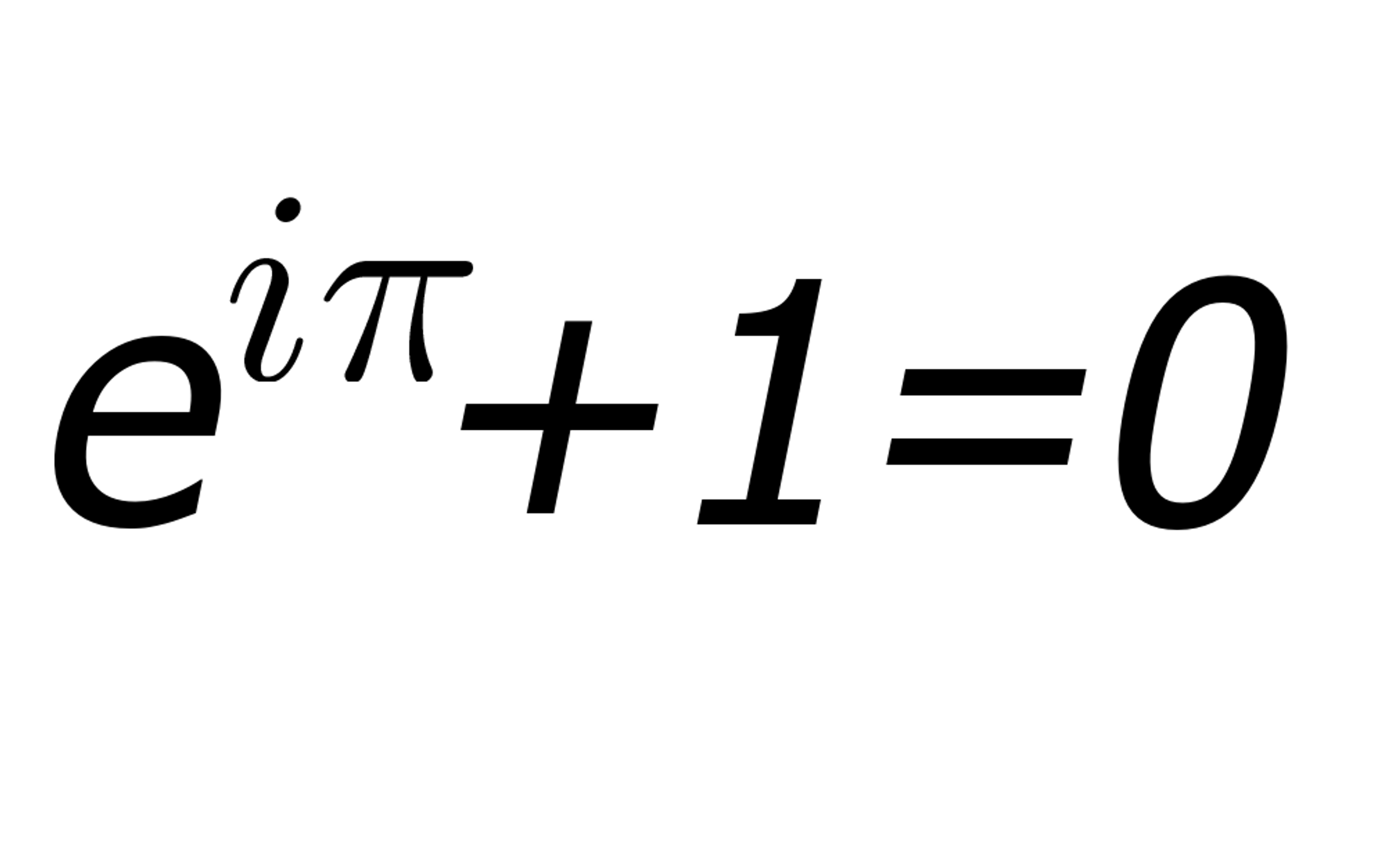‘And what do you study?’
‘Maths.’
‘Oh. I hated maths.’
I wonder how many times you’ve had this conversation at university so far. I certainly lost count during my time as a student! For most people, hearing the word ‘maths’ brings to mind a whole host of unpleasant school memories. But despite its bad reputation, you and I know that studying maths is special. Maths gives you access to both truth and beauty in a way that few other subjects can offer. Only in studying maths will you see the words ‘rigorous’ and ‘elegant’, or ‘robust’ and ‘beautiful’ side by side.
Let me assure you, God delights in maths. It is one of the manifold wonders (ha!) of his creation. And through studying maths, as you see more of God’s beauty, creativity, and steadfastness displayed in his mathematical universe, you get to delight in him in new ways every day.
Working for the wellbeing of creation
A question that comes up all too often for maths students is, ‘How on earth is this relevant to the real world?’. Any pure mathematician will tell you that that’s the wrong question to be asking, but let’s engage with it for a bit. After all, as Christians, we look to Genesis 1-2 and see that humans have been given a mandate to care for God’s creation, as his image-bearers. It’s part of what it means to be human. So it’s right for us to think about how our ‘vocation’ (in this case, studying maths) fits in.
So, how is maths relevant to the world? How is maths a blessing to humanity as we seek to steward this wonderful creation that God has given us?
Well… how isn’t it? So many spheres of life are reliant on the use of maths every day. I’m sure I don’t need to spend much time convincing you of this! But here are just a few examples:
- The algorithms that work out how to transport food (and your Amazon orders) around the world.
- The equations that describe how air will flow around a plane wing, or water through a pipe.
- Graph theory, which can be used to model anything from a social network to synapses in the brain.
- Statistics and data analysis, which are the foundation for all quantitative research, i.e. all of science (a bold claim but I’ll stand by it).
- The laws of electromagnetism, which are being applied billions of times per second inside the device in front of you, so that you can see these words on your screen!
Even the topics that are less obviously applied sometimes turn out to have unexpected applications. For example, a seemingly irrelevant bit of pure maths about prime numbers (Fermat’s little theorem, 1640) is actually a key result needed for modern-day cryptography. Centuries after this theorem was proved for its own sake, it found an application – keeping every password and bank account on the planet safe!
So, maths is a blessing to humanity and to the rest of God’s creation, but there’s something more: when you study maths, by God’s grace, you yourself become a blessing! And that’s because when you study maths, you’re training to be a problem solver.
As you learn how to construct watertight proofs, how to come up with counterexamples to claims, how to break down a seemingly insurmountable problem into achievable parts: it’s all exercising your problem-solving ‘brain muscles’ (ask a neuroscientist for the proper terminology). You learn to think logically, to articulate your point clearly, and to account for things that could go wrong. You learn patience as you stare at a problem and think about it for hours on end. You learn to ask the question, ‘If I want to achieve X, what needs to happen?’, or conversely, ‘What else could I achieve, that would guarantee me X?’. You learn to seek truth, and not settle for anything ‘hand-wavy’. You become a formidable problem solver and critical thinker in the real world.
It’s entirely possible that after studying many wonderful mathematical structures and equations during your degree, you’ll go on to never think about them again. But even if that’s true, right now you are putting your brain through a problem-solving boot camp. You yourself are becoming more equipped to be a blessing, to take care of God’s creation, and to solve some of humanity’s many problems.
Worshipping the God we work for
I wonder if you can think of a time that something in maths ‘clicked’ for you. I certainly can. There I was, in my first year of university, working at my desk. I’d been stuck on one particular question on my problem sheet for over two hours. Then, out of nowhere, the solution just popped into my head – and with it came a new insight and understanding of linear algebra that hadn’t really sunk in before. It all just clicked into place. All of a sudden, I was overjoyed! The satisfaction of solving the problem, combined with an appreciation of the beauty of maths once again, prompted such a feeling of joy that I genuinely got up and did a celebratory lap of my room.
Those moments of breakthrough and understanding, when something ‘clicks’, are more than just intellectually taking a fact on board. It’s more than just enjoying your own cleverness. There’s something much deeper going on. In those moments where something ‘clicks’, you’re encountering a truth that has always been true, and always will be true, across all time and space. It feels almost sacred: you’re uncovering something deeply true about reality.
And not only is maths deeply true, it’s stunningly beautiful too (just watch any 3Blue1Brown video if you need to be convinced of that). Think of examples like Euler’s identity, or the sheer elegance of Euclid’s proof that there are infinitely many prime numbers, or the way in which the Laplace transform allows you to solve a differential equation by just playing around with some algebra. Why on earth should maths be so beautiful?! And yet it is. You can’t explain it – all you can do is marvel at the beauty of God’s creation.

And as you marvel at creation, you have an opportunity to worship the creator. Pray to him! Thank him for his beauty and consistency. Kneel in awe before the one who knows all mathematical truth – more than that, who designed all mathematical truth! Fear him as the one whose ways are high above your ways. Adore him as your heavenly Father, who graciously allows you to understand and appreciate the world he’s made, though you haven’t earned it.
Witnessing to the world
So far we’ve thought about maths from a Christian perspective. But what about your non-Christian coursemates who you sit next to every week in lectures and classes? Does maths point them to God? Does it open up doors for you to proclaim the good news of Jesus to them? Being honest, the maths department so often feels like a completely different world to the worlds of church and CU. When we’re doing maths, it feels like we’re so far away from things like love, justice, brokenness, ‘spiritual stuff’, sin, redemption, history: maths feels separate and sanitised.
But despite this, I believe that studying maths gives you so many opportunities to point those around you to the Lord Jesus. Here’s just one avenue: exploring the question, ‘Is maths discovered or invented?’.
Now everyone agrees that the language of maths, the way in which we write things down, is invented. But what about the stuff that the language is describing? The concepts, the rules, the substance… was all of that invented by humans, or have we discovered it?
If maths is purely a human invention, I’d argue that we run into big questions that leave us crying out for God. For example, there’s something philosophers call the ‘unreasonable effectiveness’ of maths in the natural sciences. We seem to live in a universe that’s so… mathematical. So consistent, so logical. As Galileo said, ‘The laws of nature are written in the language of mathematics’. But why should we expect the world to behave like this, if all our mathematical rules and structures are simply a made-up construct? Worse still, as well as being so effective at describing the world, maths even seems to have predictive power, guiding scientists towards the next discovery.
As theoretical physicist Edward Witten once remarked, ‘It’s as if the universe had been created by a mathematician!’.
But what about if maths is discovered? What if when we study maths, we’re actually uncovering pre-existent truth? I think there are still some big questions that point us to God in this case too. Not many people realise this, but it’s very hard to believe that maths is discovered without needing to believe in something more. Put simply, the physical world ‘can’t hold’ maths. Even one of the most basic mathematical objects, the circle, doesn’t exist in the physical world (at least not perfectly). But if maths is discovered, if it is pre-existent truth, it feels like there has to be more to our reality so that it ‘can hold’ maths: there needs to be something, somewhere, someone, that goes beyond what we see. This is what drove many ancient thinkers like Plato. But, if maths is all ‘out there’, somewhere beyond, then how can we humans possibly have any chance of understanding it?
Perhaps we need it to be revealed to us.
What if, whenever we discover truth through mathematical study, what we’re really seeing are glimpses, small revelations of Truth himself? And what if there was a bigger revelation? What if Truth were to somehow take on human flesh and walk the earth, so that we might know him fully?
‘The Word became flesh and made his dwelling among us. We have seen his glory, the glory of the one and only Son, who came from the Father, full of grace and truth.’ John 1:14.
Loving Christ in maths
I hope this article encourages you in your walk with Christ throughout your time at university, and that it helps you to see how your course connects to your life as a follower of Jesus. My hope and prayer for you is that through the highs and lows of studying maths, you grow in your love of Christ, who is the source of all truth and beauty, and that your love for him would overflow into a desire to glorify him in your studies. In the words of Paul to the Colossian church: ‘Whatever you do, whether in word or deed, do it all in the name of the Lord Jesus, giving thanks to God the Father through him.’
Reflect and discuss
Think: Think back over what you have studied so far in your degree. Where have you seen God's fingerprints? Where have ideas presented to you challenged what you believed to be true?
Live: What do you think your coursemates would know about what is important to you from the way you live? Is there anything you want to change here?
Speak: Are there topics in your subject that are closer to talking about your outlook on life, God or the gospel? Pray for people on your course and for opportunities to share about Jesus with them this term.
Taking it further
- Mathematics : Is God Silent?, James Nickel
- Mathematics for Human Flourishing, Francis Su
- Mathematics Through the Eyes of Faith, James Bradley & Russell Howell
- Redeeming Mathematics: A God-Centred Approach, Vern Poythress

